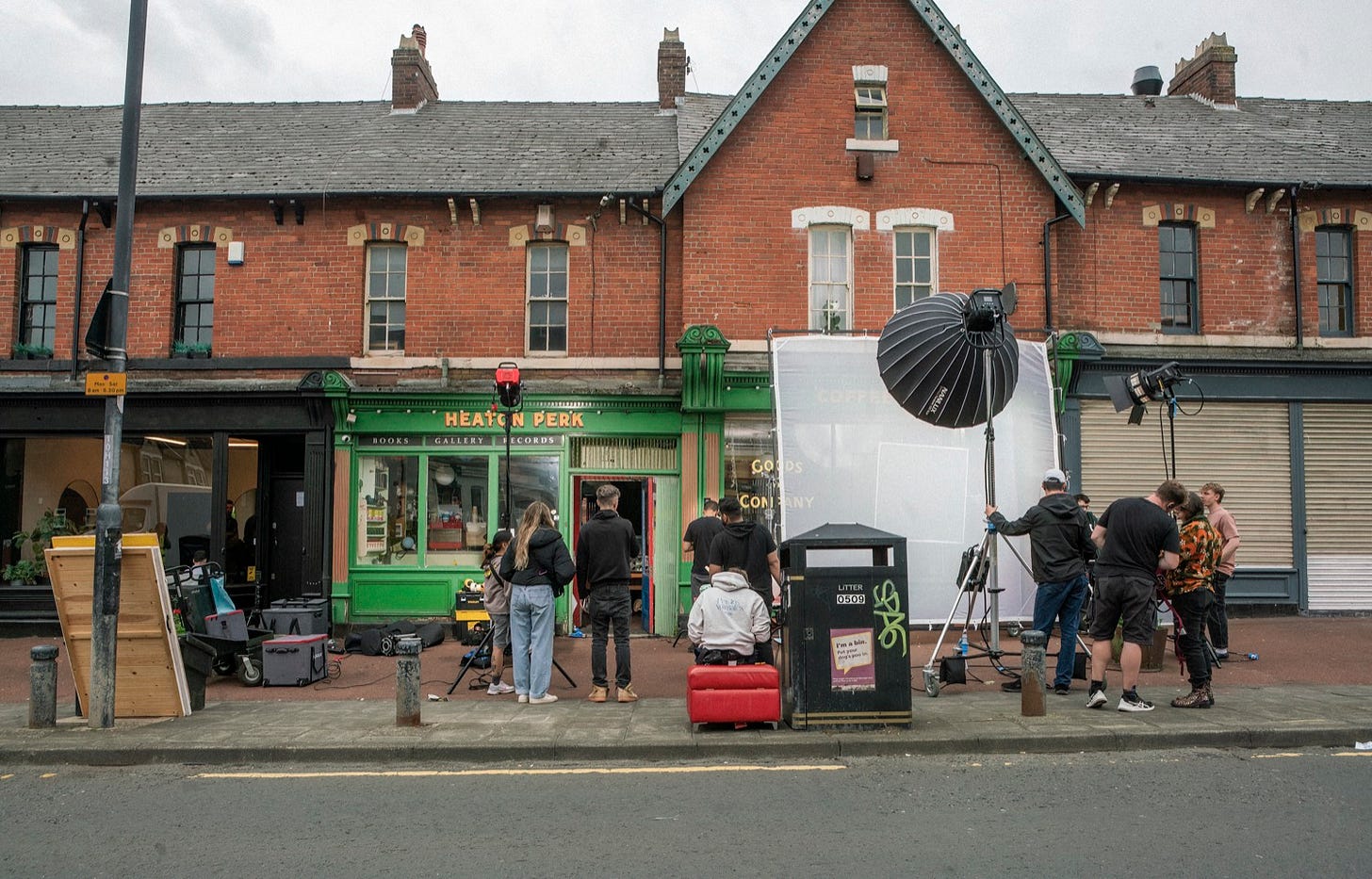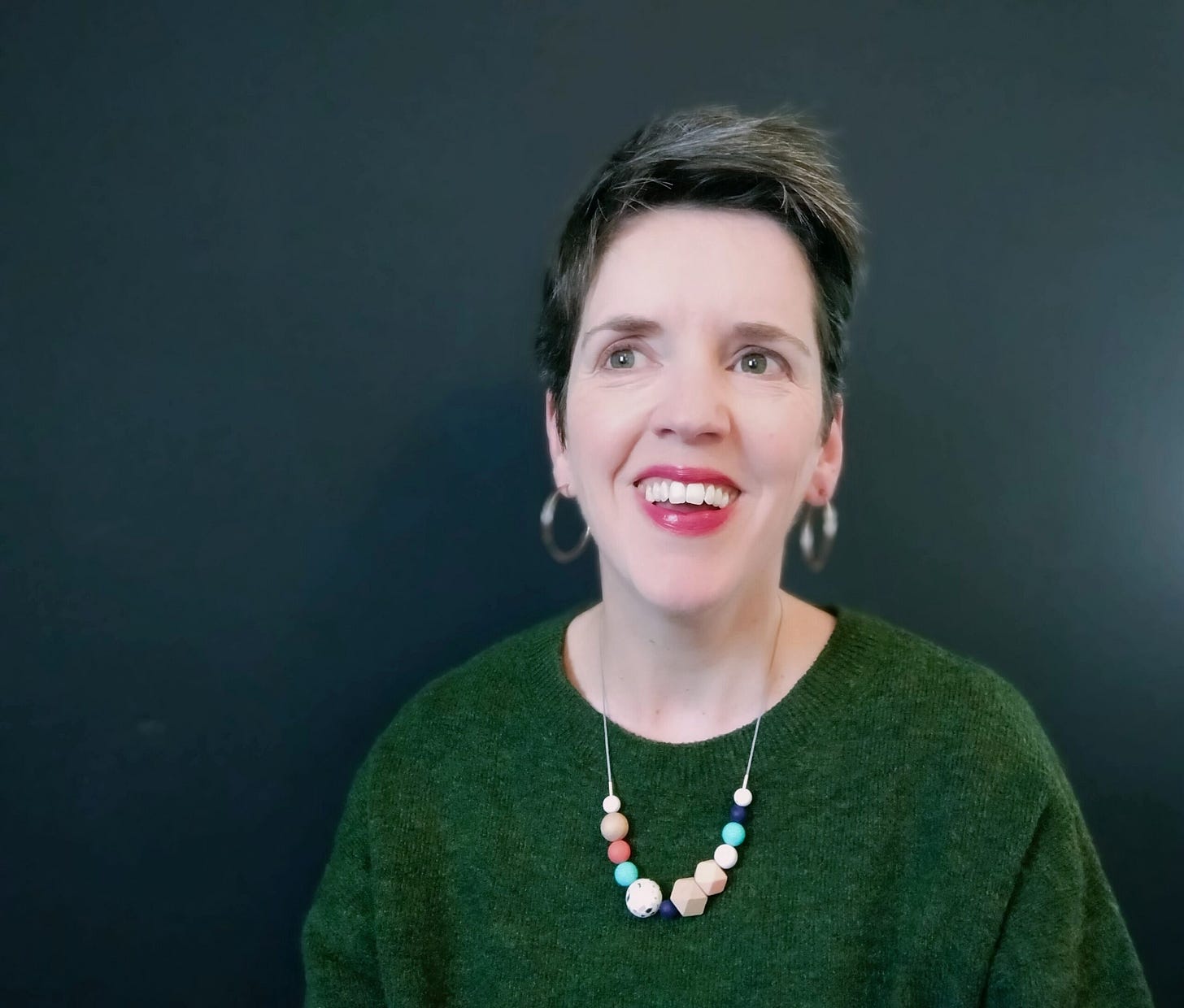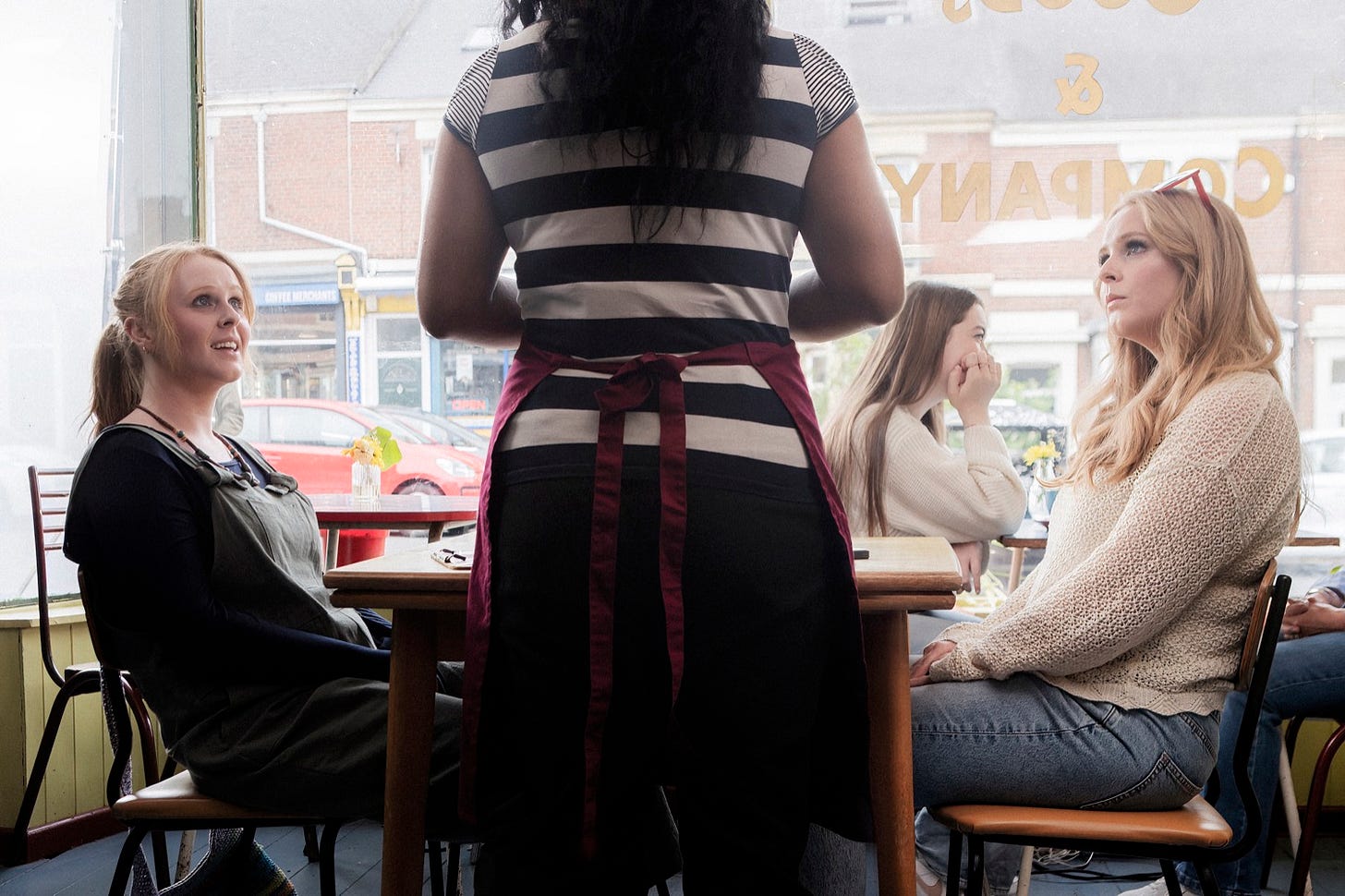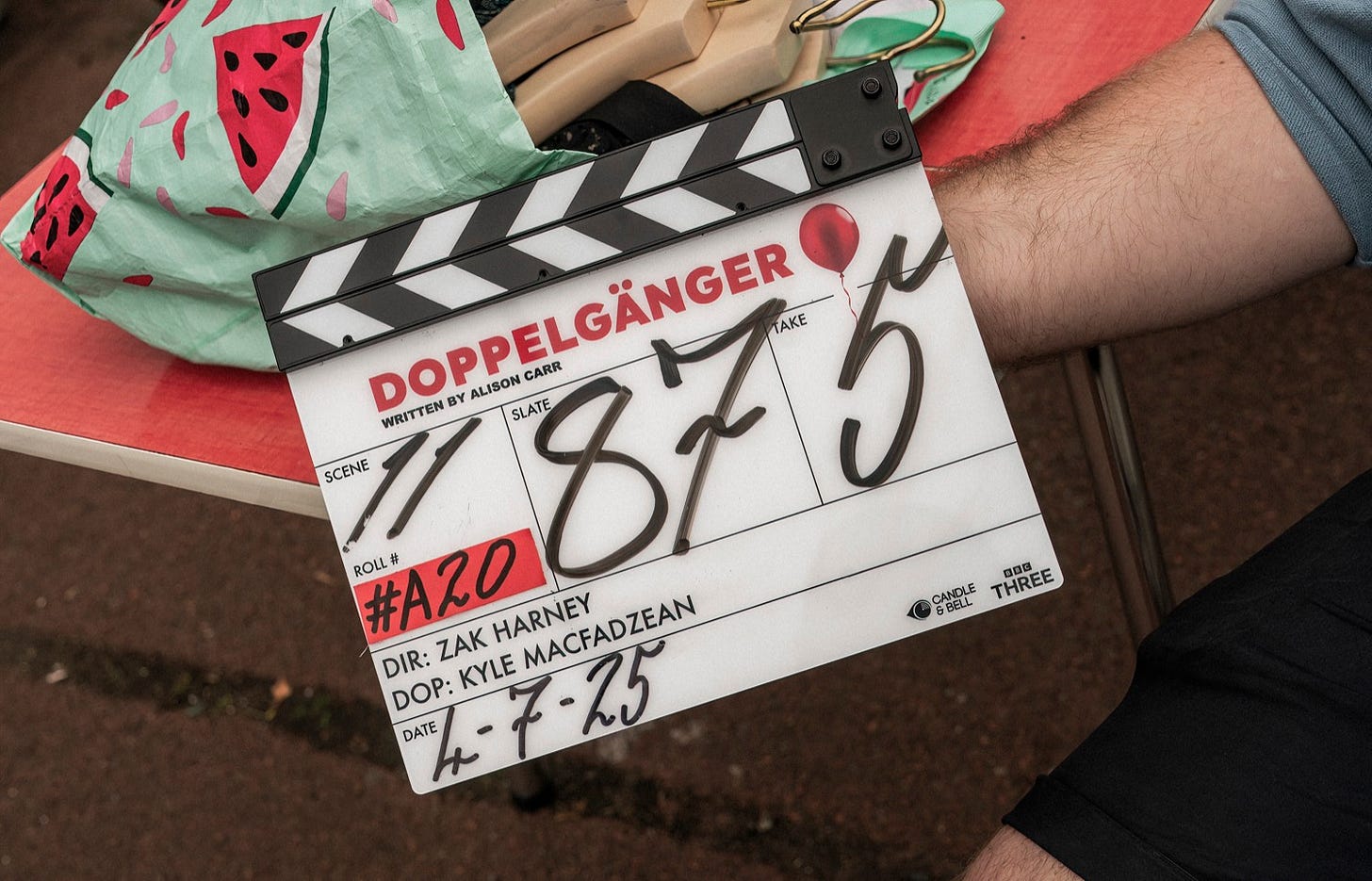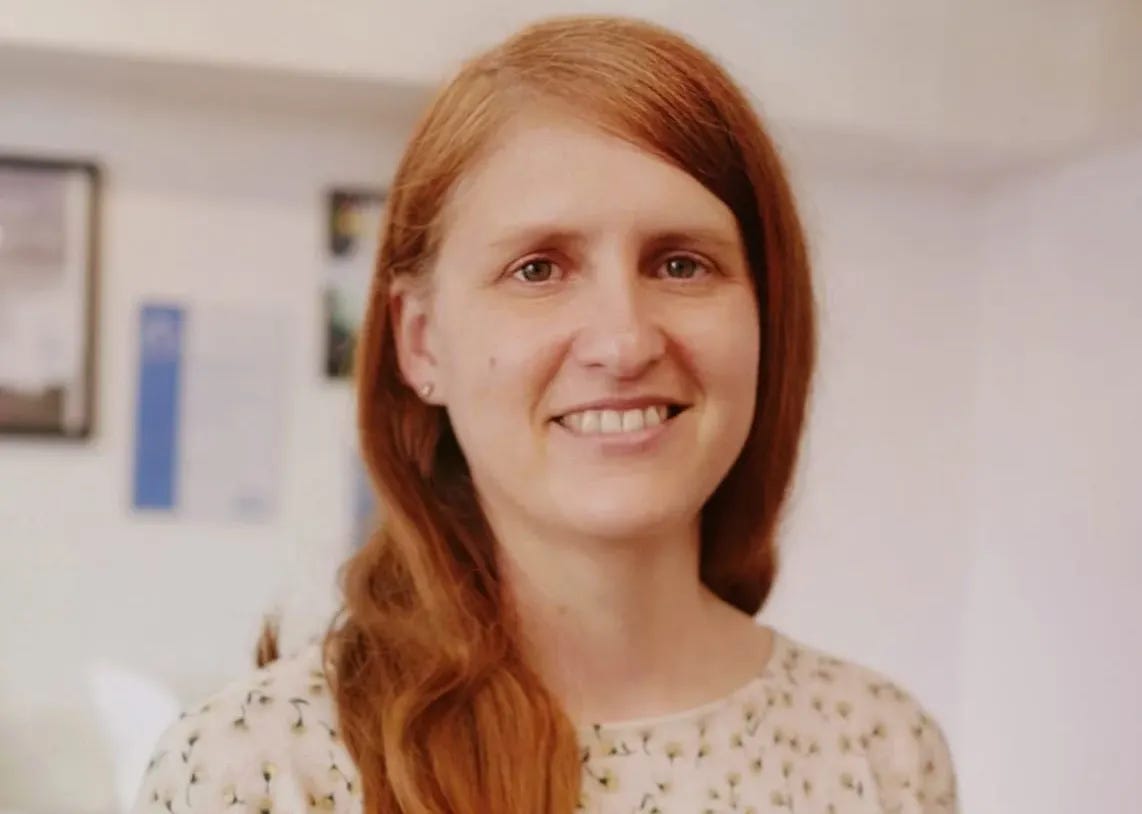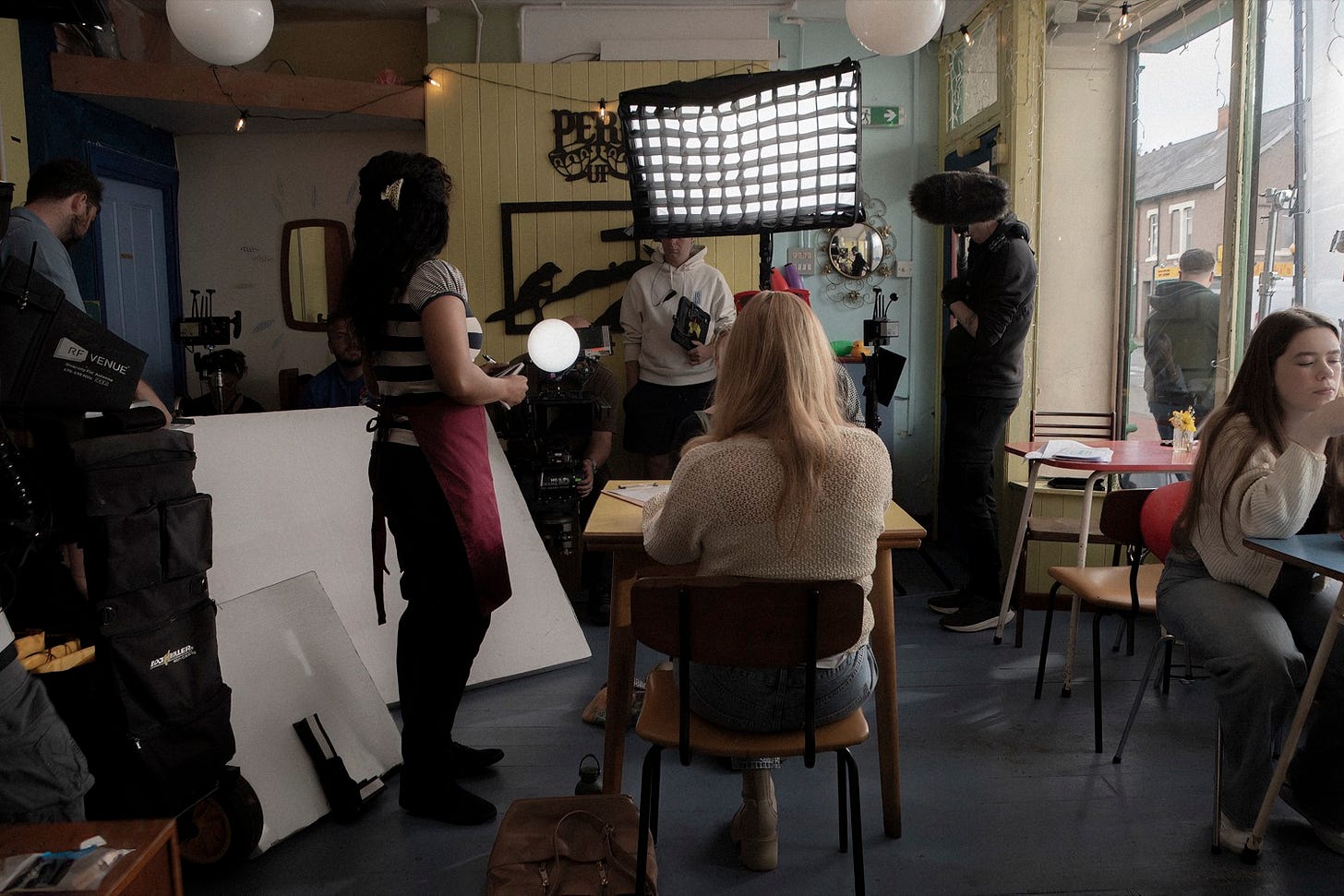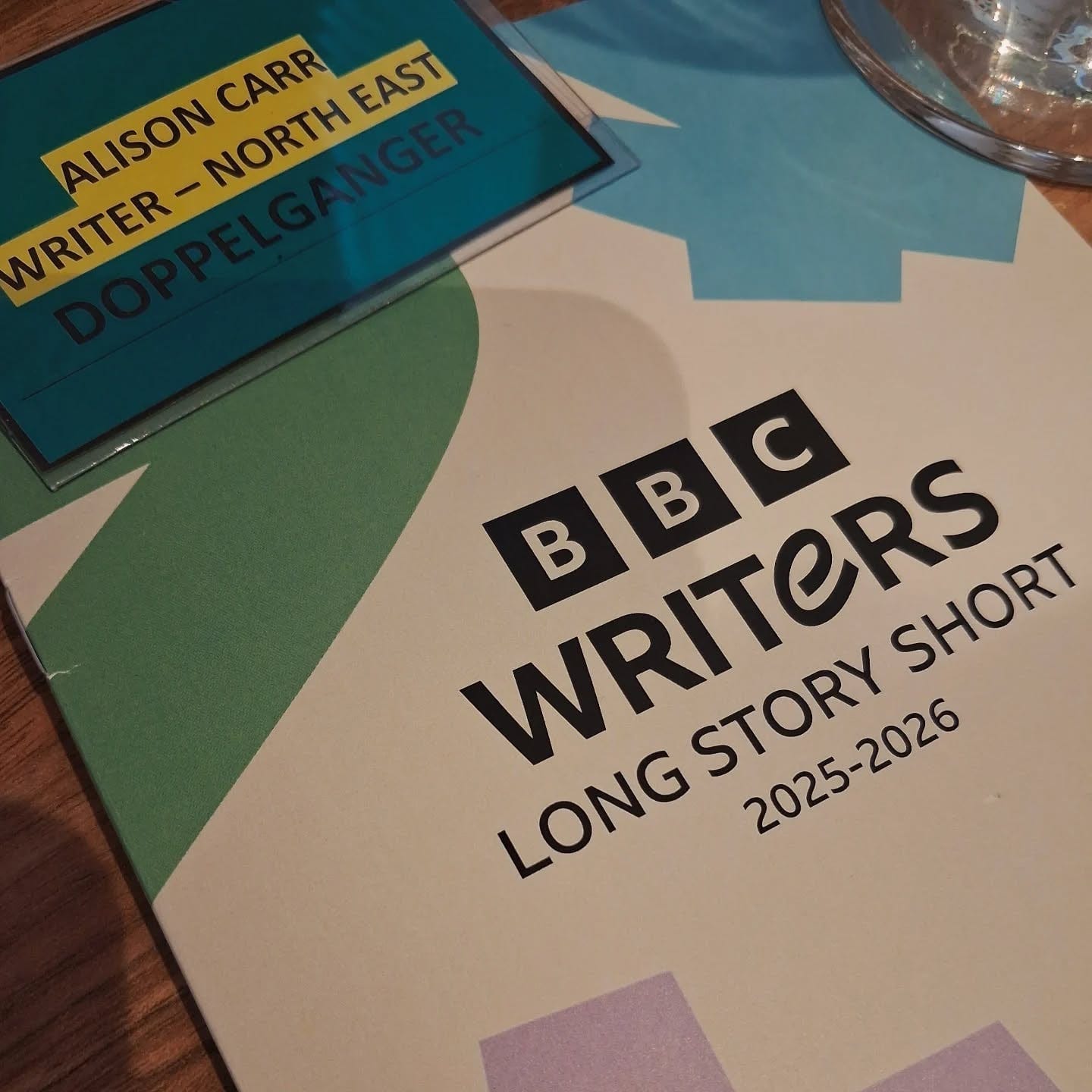From stage to screen: Newcastle playwright’s screenwriting debut for the BBC
Alison Carr has spent years seeing her stories being told on stage. Now her imagination has been let loose on screen for a new short film produced by North East company Candle and Bell
When playwright Alison Carr took her seat at the BFI IMAX in London last week, she found herself watching something she’d never quite imagined - her own words, being spoken on the UK’s biggest cinema screen.
The moment was the premiere of Doppelgänger, a 15-minute short film produced by Gateshead-based Candle & Bell and supported by North East Screen for the BBC’s Long Story Short series.
The idea behind the series, which has produced seven films in total, is to bring together new writing and directing voices from across the UK, pairing them with local independent production companies to create original films for BBC Three and iPlayer.
For Alison, it marks an exciting new chapter - or perhaps new episode might be a better way of putting it.
The award-winning Newcastle-based writer, known for a string of plays including The Soaking of Vera Shrimp, Iris and North East Culture Award-winner A Street Like This, has seen her work performed on stages around the country. But screenwriting felt, she says, like “this unknowable thing I’d never been brave enough to try.”
Her route to Doppelgänger began during lockdown, when she joined the BBC Writers’ North East Voices group. When the corporation later issued an open call for short-film ideas under the Long Story Short banner last November, she decided to have a go.
“I’d written one spec script as part of the North East Voices group,” she says. “That was the first time I’d ever attempted to write for the screen. So when this call-out came, I sent something in. The spec script got me through the door - and from there we sat down, broke it all apart, built it up again, and made it into what it is now.”
It won’t surprise anyone who has followed Alison’s stage work over the years (hello!) to hear that the film’s premise is both everyday and extraordinary.
When 10-year-old Josie Johns meets her exact double, another 10-year-old girl also called Josie, it sparks a decade of rivalry that grows increasingly intense and surreal. Now an adult, Josie is ready to confront her counterpart, settle a few scores and reclaim her identity.
“It’s called Doppelgänger, so that gives you a bit of a clue,” Alison says, laughing. “It’s about control, self-image, and who gets to define you. It’s weird, a bit heightened - but fun too.”
Candle & Bell, run by Maria Caruana Galizia with development producer Zahra Zomorrodian, were chosen by the BBC to represent the North East within the Long Story Short slate.
A three-time recipient of support from the Corporation’s Small Indie Fund, the company recently delivered the second series of Radio Four Comedy, Tom and Lauren are Going OOT! and have a number of projects in development.
“The BBC paired us up, and it just worked,” says Alison simply. “Maria and Zahra were really supportive. They knew this was all new to me and gave me the space to find my own way through it. I never felt overwhelmed. They pushed me and challenged me, but it always felt achievable.”
That support allowed Alison to think bigger. “The script that I submitted versus the one we filmed are really different. The core story’s the same, but the way it’s told is much more ambitious. They gave me the freedom to go for it, to be imaginative, and not feel like it had to be small. Even though it’s a short film, it feels big - it’s got a lot of ideas.”
Maria, who set up Candle and Bell in 2013 after years working on feature films and high end TV dramas (including Game of Thrones) says she saw the potential in Alison’s script immediately.
“We got a very early draft,” she says, “and you could tell it needed to be developed for screen, but the writing was really, really good. The concept felt perfect for a BBC Three audience. After meeting Alison, I knew we could work with her.
“She’s got this incredible imagination, and a wonderful way of bringing character to life through dialogue.”
For Maria, Doppelgänger came along when she least expected it. “I told the BBC I wasn’t sure I wanted to make another short film - I’d produced 15 already - but this was different. The chance to work with BBC Writers and pick the writer, the script and the director ourselves made it really worthwhile.”
The director turned out to be newcomer Zak Harney, chosen from almost a hundred applicants. “We wanted the process to be open,” says Maria. “Zak had a fantastic pitch - strong visual ideas, a great understanding of tone - and he’s been brilliant to work with.”
Filming took place over four days in early July, with the cast and crew moving quickly between locations in Heaton, Pelaw and on board a Metro.
“It’s mad to think it’s going to be on telly,” she says. “I’m really proud of what we made. It’s bright, it’s funny, it’s got loads going on - and I can’t wait for people to see it.”
Alison Carr, writer of Doppelgänger
“I expressed a preference for shooting in Heaton if it was possible,” says Heaton resident Alison. “So I was delighted when [renowned local cafe] Heaton Perk ended up being at the heart of the action.”
Sarah Balfour stars as both Josies, alongside Jack Robertson, Adam Davison and Raul Kohli. Alison spent the shoot mostly observing. “My job was done,” she says. “It was fascinating just to watch it all happen. Seeing my words come alive on camera - it was such an out-of-body experience.”
The speed of the project was swift. Alison submitted her script in November 2024, was selected in February, delivered her final shooting draft in June, and was on set by July.
“It was all mapped out before the opportunity even went out,” says Maria. “There wasn’t time for development hell!
“Pre-production was everything all at once - casting, locations, scheduling - it’s not like one thing after another, it’s everything together. But we have fantastic crews in the North East. We can move from a park to a café to a studio in minutes. Everyone just got stuck in, and people were so supportive.
“Wherever we filmed, locals wanted to know what we were shooting. It’s one of the nicest things about filming in Newcastle - people are genuinely excited to see it happening.”
Projects like this are invaluable, says Maria. “It’s not just about writers and directors. For producers, it’s a chance to work through the whole BBC process - contracts, delivery, business affairs - things you can only really learn by doing them.
“The BBC’s Small Indie Fund (for which Candle and Bell has been selected three times) and projects like this open doors for companies like ours.”
North East Screen’s involvement, she adds, was crucial. “They were part of the financing and have been very supportive. North East Screen is ambitious - it wants companies here to do well, and that’s exciting.”
For Alison, the experience has left her hungry for more. “I’d be a fool to say no,” she laughs. “I think now I’ve got the confidence to just get on with it. I’ve always had the skills - now I know I can do it, and that it’s achievable.”
That’s not to say she’s taking her foot off the playwriting pedal. Last week, her dark comedy Opossum - inspired by the true tale of Seaton Carew couple Anne and John Darwin who were convicted of fraud in 2008 after faking John’s death in the North Sea - was named the inaugural winner of the Rose Fisher Award for Writing and will be produced by Laurels Theatre in spring.
Maria says she very much hopes their paths cross again soon. “Alison’s imagination is extraordinary. The ending of Doppelgänger is something only her brain could have come up with. She’s got such a distinctive voice.”
And that voice remains firmly rooted in the North East. Alison takes obvious delight in seeing her neighbourhood on screen. “It couldn’t be more Heaton if it tried,” she says, laughing. “I just hope Heaton Perk’s ready for the tourists.”
For now, she’s still processing the strangeness of seeing her name scroll by in a cinema. “It’s mad to think it’s going to be on telly,” she says. “I’m really proud of what we made. It’s bright, it’s funny, it’s got loads going on - and I can’t wait for people to see it.”
Doppelgänger will be transmitted in early 2026 as part of the seven-part Long Story Short series on BBC Three and BBC iPlayer.



